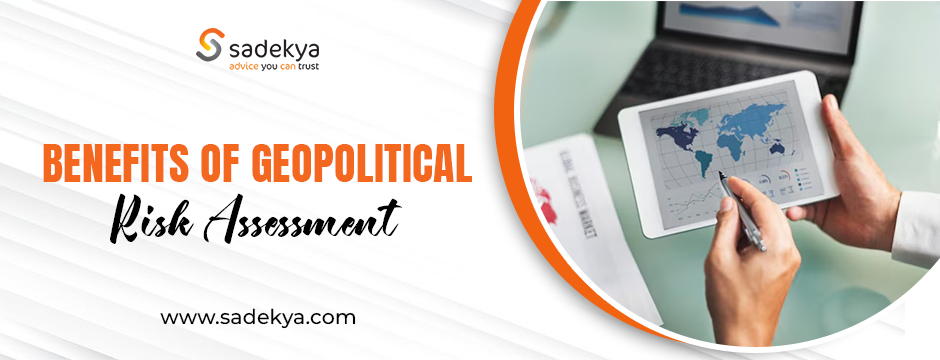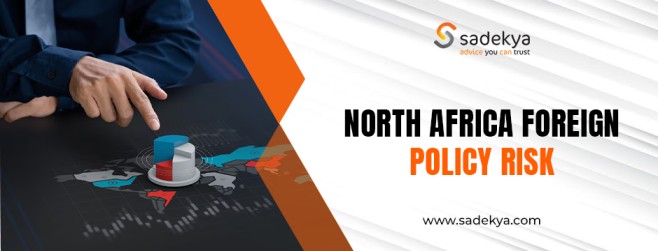In an interconnected global economy, businesses depend on complex networks of production, shipping, regulation, and finance that stretch across multiple countries. Supply chains span continents, cross cultural and legal borders, and must adapt to changing political climates. Political instability—such as sudden shifts in regulation, government overthrows, trade wars, sanctions, or social unrest—can severely disrupt supply chains by increasing costs, delaying deliveries, or making operations unviable. For companies engaged in trade, even small changes in import/export laws, customs duties, or foreign investment policy can ripple into massive financial losses.
Political risk management is the practice of anticipating such risks, assessing their potential impact, and putting in place strategies to avoid or mitigate harm. When properly embedded into supply chain planning and trade operations, this discipline does more than just protect against loss—it becomes a competitive advantage. Firms that understand the political contexts in which their partners, suppliers, and markets operate are better able to maintain continuity, ensure compliance, avoid bottlenecks, and build resilience. In a world where geopolitical tensions, trade policy shifts, and regulatory uncertainty are rising, risk management is no longer an optional luxury—it’s essential. This article examines how political management protects supply chains and trade, outlining key strategies with real-world implications.
Increased Visibility & Early Warning Systems
- Risk mapping and monitoring: Companies monitor political, regulatory, and economic developments in the countries they depend on. This might include political protests, upcoming elections, policy shifts, or rising tensions with trade partners.
- Supplier audits and assessments: Firms can examine suppliers’ exposure to political risk—e.g., how stable the local governance is, whether there are corruption risks, or environmental/social compliance issues.
- Real-time intelligence tools: Using data analytics, news feeds, and geopolitical risk ratings to identify emerging threats before they become crises. This allows decision-makers to react early.
Visibility helps avoid being blindsided by events—whether it’s sudden tariff imposition, shipping route blockages, or a local regulation change that raises costs.
Diversification and Design Flexibility
- Multiple sourcing/supplier diversification: Relying on a single supplier or a single country for critical inputs creates a single point of failure. Diversifying suppliers across regions spreads that risk.
- Backup suppliers and alternative routes: Political risk consulting may maintain relationships with alternative suppliers, have alternate transportation or logistics routes, or dual-source critical components.
- Near-shoring / friend-shoring: Shifting some production or sourcing closer to home, or to politically stable or allied nations, to reduce exposure to risk from distant or unpredictable regions.
Design flexibility sometimes means being able to switch modes of transport, change suppliers on short notice, modulate inventory levels, etc.

Contracts, Legal Safeguards, & Insurance
- Strong contractual provisions: Including stabilisation clauses, change-of-law clauses, arbitration/dispute resolution mechanisms, and force majeure that explicitly cover political risk events. These help allocate risk or provide recourse if political changes make original terms untenable.
- Political risk insurance: This protects financial investments when the political environment impact on business, such as expropriation, currency inconvertibility, war, or other government action, which could otherwise lead to losses.
- Regulatory compliance and scenario planning: Foreseeing regulatory changes (tariffs, customs, embargoes) and building plans for alternative paths. Also, ensuring trade compliance so that shipments or contracts are not held up by unexpected legal issues.
Continuity, Redundancy, and Resilience
- Inventory buffers and safety stocks: Instead of just-in-time models that minimise cost, companies may carry additional inventory of critical parts to cushion against disruptions
- Multiple transportation/logistics paths: If one route becomes blocked (by war, trade restrictions, or political blockade), having alternate routes ensures continuity.
- Stress-testing supply chains: Running simulations or scenario analysis to imagine how supply would respond under various risks such as embargo, currency collapse, or trade war. Then plan accordingly.
Stakeholder Engagement & Government Relations
- Local partnerships: Working with governments, local suppliers, and communities to build goodwill and understanding; sometimes this helps in anticipating regulatory shifts or gaining early insight into local political changes.
- Policy monitoring and adaptation: Keeping track of trade policy, foreign investment rules, sanctions, export/import regulations so that business models and operations adapt as needed.
- Diplomacy and alliances: Sometimes companies or industries lobby governments or participate in trade associations to influence policies that affect supply chains—such as liberalising trade, securing trade agreements, or obtaining exemptions.
Real-World Impacts & Benefits
- Reduced disruption costs: When political turmoil strikes (e.g., civil unrest, sudden tariffs, or nationalisation), companies that had early warning systems, diversification, and strong contracts often fare much better. Disruptions are shorter and less costly.
- Competitive advantage: Buyers, regulators, and consumers increasingly favour firms whose supply chains are resilient and compliant. Firms that manage political risk well can assure partners and customers of reliability.
- Reputation protection: Companies that are caught in scandals (by violating local laws or being exposed through opaque supply chains) can suffer reputational damage. Political risk management helps avoid that.
- Access to new markets: Understanding regulatory landscapes can enable businesses to pre-emptively enter or adapt to markets before competitors, or comply with local content rules, export-import restrictions, etc.
Challenges in Political Risk Management
- Unpredictability: Some political events are hard to foresee (coups, rapid regime changes). Even good intelligence may fail.
- Cost trade-offs: Maintaining redundancy, buffer stock, or alternative suppliers increases cost. Sometimes margins are thin.
- Complexity: For multinational supply chains, political risk layers multiply: legal, financial, regulatory, cultural. Managing them coherently takes expertise.
- Data & transparency: It can be hard to get accurate data about suppliers in remote or less transparent jurisdictions. Risk assessments may be incomplete.
Final Thoughts
Protecting supply chains and trade from political risk is not just about hedging bets—it’s about proactively structuring operations, contracts, sourcing, and stakeholder relationships to thrive, even when external shocks happen. Companies that embed political risk management into their strategy gain stability, reliability, and resilience, turning volatility into manageable risk rather than an existential threat.
At Sadekya, we go beyond surface-level country analysis. Our core expertise lies in helping investors strategically apply international investment protection treaties to safeguard their assets. By leveraging treaty-based mechanisms, we neutralize exposure to expropriation, currency inconvertibility, arbitrary regulation, and other government actions that can disrupt supply chains and trade.
If you are seeking a long-term framework to secure your supply chain resilience, Sadekya’s specialised investment protection and political risk mitigation services provide the tools to keep your trade operations strong and future-ready.













